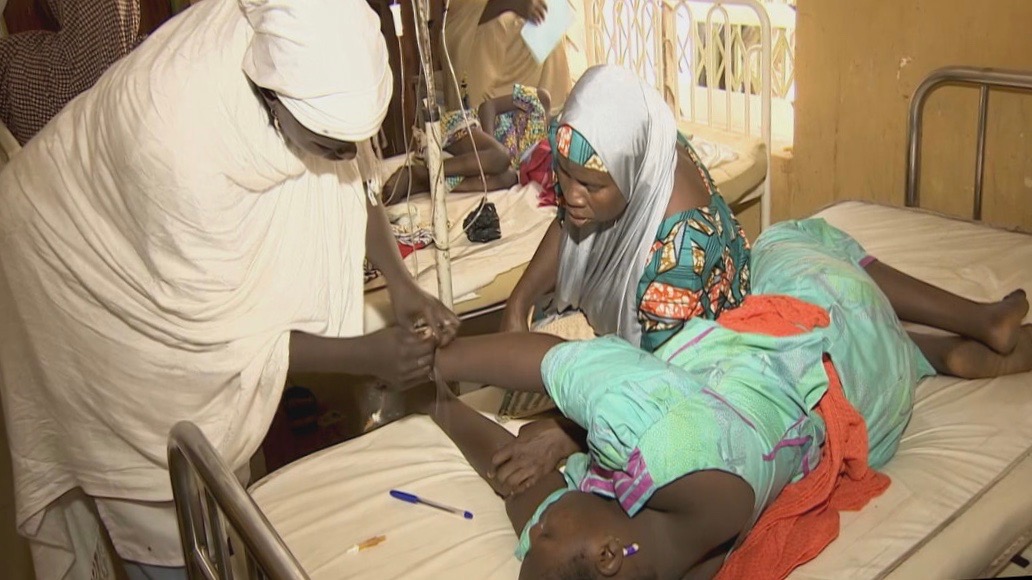As Nigeria proceeds with easing COVID-19 lockdown restrictions, the total number of confirmed cases in the most populous African country have risen to 27,110, according to the latest data released by Nigeria Center for Disease Control on Thursday July 2. Of these, 15,693 are active cases, and 10,801 patients have been discharged following recovery. 626 new cases were detected on July 2, along with 13 deaths, taking the official total death toll to 616.
Like in most other countries, the economic hub Lagos is the worst-affected State with 10,823 cases, amounting to 40% of all cases, and 132 deaths.
The Federal Capital Territory (FCT), which includes the capital city of Abuja, is the second most affected in the country, with 2,020 or 7.3% of the total cases.
FCT is followed by the States of Oyo, Kano, Edo and Delta. The rate of new cases in Delta has risen sharply over the last few days. The State accounted for the highest number (166) of the 790 new cases detected on July 1.
Delta governor Ifeanyi Arthur Okowa also confirmed on July 1 that he and his wife had contracted the disease. A day before, Ondo State governor Rotimi Akeredolu had confirmed that he was tested positive.
When the Nigerian government first imposed the lockdown on March 29, only 97 confirmed cases and one death had been recorded in the country. It is evident that the measures taken by the government have not resulted in “flattening the curve” of the rate of infection.
In the meantime, the economic burden on ordinary Nigerians has been enormous. Unable to institute appropriate measures to address this problem, the government is now progressively easing the lockdown restrictions to resume economic activity, even as the rate of virus spread is on the rise.
According to the guidelines published by the government on July 1, the curfew between 10 p.m and 4 a.m has been retained. The curfew is applicable until revision on July 27, However, outside of the curfew hours, inter-State travel is permitted. Domestic flights will also resume from July 8.
Industries can resume functioning normal hours at 75% labor capacity by maintaining two meters physical distance between workers.
Corporate offices are to operate from 9 am to 2 pm from Monday to Friday. No particular restrictions have been specified to limit the number of workers, except for a recommendation to “encourage work at home policy” for those whose presence in office is not necessary.
Supermarkets have been advised to “limit the number of customers and staff to allow physical distancing” and to ensure that all customers are checked for temperature and provided with hand sanitizers.
“Mechanics, artisans, hair salon operators etc, who own their workshop/workstations and can clearly adhere to” the prescribed safety precautions are also “permitted to operate.”
Local authorities are instructed to “allocate day and time for opening of shops” in public markets, depending on the situation in the area under their jurisdiction.
Hotels can also reopen, while restaurants, except those inside hotels, “are to remain closed for eat-ins”. Smaller eateries can only offer take-away services.
While teachers, regarded as “essential staff”, can resume work, the guidelines originally stated that schools remain closed for students until further notice. However, a day after these guidelines were published, Africa News reported that president Muhammadu Buhari made some modifications and “approved the re-opening of schools only for students of graduating classes, to allow them prepare for examinations. That is, Primary 6, Junior Secondary School 3 and Senior Secondary School 3.”
The gradual easing of the lockdown in Nigeria had started in the month of May. After further easing of restrictions on June 2, banks were permitted to resume operating normal hours, while government offices were permitted to function between 9 am to 2 pm. Some State governments went further and eased more restrictions.
The total number of confirmed cases rose by 15,532 in June, from 10,162 on June 1 to 25,694 on June 30. The number of active cases rose by 8,490, and total deaths by 303.
Currently, Nigeria has the third highest number of cases in Africa after South Africa and Egypt. The over 27,110 cases in Nigeria amount to 6.3% of the total estimated 419,035 cases on the continent as on July 2.
However, the real extent of the spread of the disease may not be reflected accurately in these official figures due to the low levels of testing in Nigeria.
With a population of around 200 million, Nigeria, the most populous of African countries, had conducted only 141,525 tests by July 2. In contrast, South Africa, whose population is just over 57 million, had by July 1 conducted 1,666,939 tests.
This translates to 27.48 tests per 1,000 people in South Africa, while Nigeria has conducted only 0.67 tests per 1,000 people.
This raises serious doubts about whether or not the true extent of spread in Nigeria is being measured and whether or not accurate projections can be made about the rate of infection, the peak and other important calculations regarding the spread of the virus.





